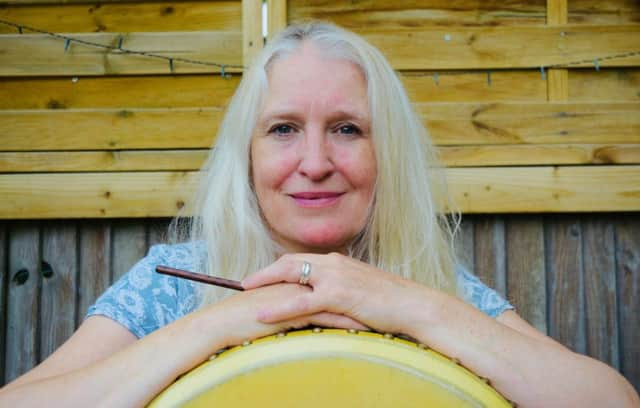Interview: Aimée Leonard prepares to sing the story of Orkney's greatest unsung hero


Only now is he gaining the recognition he deserves. A slab in his memory was installed in Westminster Abbey four years ago and, later this month, the opening of a new Polar Worlds Gallery at the National Maritime Museum at Greenwich will host a celebration of Rae in song and music, led by Orcadians and with input from the Inuit people whom he befriended.
The London-based Orcadian singer Aimée Leonard has been leading a community project composing a song about Rae to be performed on 22 September, during the opening weekend of the new gallery.
Advertisement
Hide AdAlso involved are the Orcadian archaeologist and singer Dr Sarah Jane Gibbon, the Inuit historian and cultural adviser Bernadette Dean, who is composing a verse in the Inuktitut language, and the Orcadian fiddler Jennifer Wrigley, who will play an air she composed in Rae’s honour on a fiddle once owned by the explorer.
Leonard is a resident musician at the National Maritime Museum, part of a wider Musician in Museums project run by the English Folk Dance and Song Society, and her Rae project is the first in a series she’s anxious to continue, rehabilitating individuals whose achievements have not been hitherto recognised by the establishment.
Apart from the Franklin episode, Rae’s contemporaries looked askance at him for his fraternising with the Inuits, from whom he learned survival skills, including how to make and use snow shows – one of his Inuktitut names was Aglooka, “he who takes long strides”.
He may have been rendered persona non grata by the British establishment, with Franklin’s widow and her friend Charles Dickens leading the campaign of vilification, but as Leonard stresses: “He was never forgotten by people in Orkney or by the Inuits.”
She’s speaking to me from Orkney, where she and her family have been holidaying, and where Janette Park, curator of Stromness Museum, has been highly supportive, lending Rae’s fiddle, currently being overhauled by a luthier for the performance, and also hosting a “Traveller’s Book” Leonard dispatched from London for locals and visitors alike to enter their thoughts on Rae.
One entry is from John Rae’s Canadian great-great-niece, who happened to be visiting Orkney.
Advertisement
Hide AdAs well as writing the new song, Leonard and choir have been learning other songs by way of inspiration, including Lady Franklin’s Lament for Her Husband – well known in its more distilled form as Lord Franklin.
The overarching theme of Leonard’s museum residency, she says, is to rehabilitate the reputations of important people who have been unrecognised or misrepresented by the establishment.
Advertisement
Hide Ad“I wanted to start with John Rae, obviously because he came from Orkney, and he wasn’t mentioned in the National Maritime Museum at all,” she said.
Later in the project, pending further funding, she’d like to bring Dean, the Inuit historian, to the UK for further work on the Franklin episode.
“I don’t want the Inuit involvement to be just one verse in a song,” she insited, adding that she also plans to work with the Afro-Caribbean Social Forum in London in composing a song about Mary Prince, a former slave from Bermuda who became an important figure in the Abolitionist movement.
So she’s literally singing about unsung heroes, and she hopes the new song about Rae will sound out at next year’s Orkney Folk Festival. “Folk songs,” she says, “are artefacts – living, breathing, singing artefacts.”
For further details of Aimée Leonard’s workshops, see www.facebook.com/EFDSS